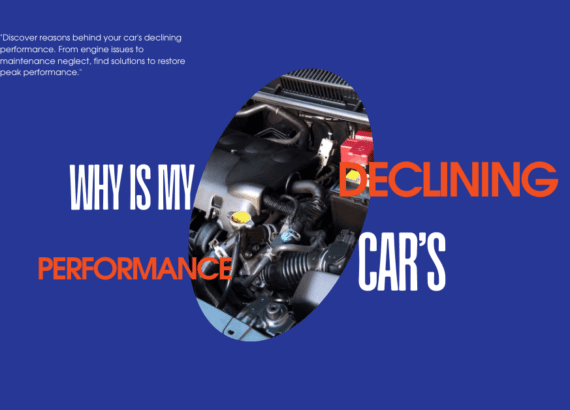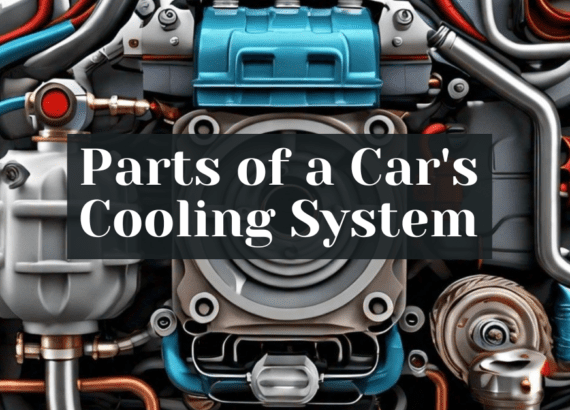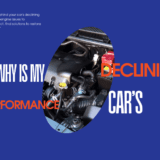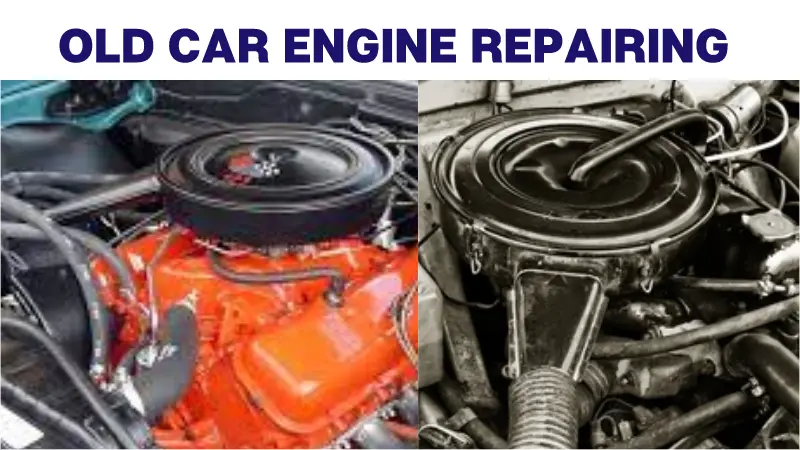What are the Symptoms of Bad Fuel Injectors?

Fuel injectors play a vital role in your car’s performance, but when they start to fail, they exhibit clear signs of trouble. Issues with these components can lead to a range of symptoms, including poor performance, rough idling, and inconsistent gas mileage. These problems often stem from an imbalance in the air-fuel mixture caused by clogged or dirty injectors. As someone who’s dealt with this firsthand, I’ve experienced how this imbalance can cause shaking and power loss, affecting the car’s overall operation.
The accumulation of grime and dirt within injectors significantly impacts their functionality. Even after a thorough cleaning, these contaminants continue to challenge the injectors’ optimization, making it nearly impossible to ensure their effective operation. This ongoing battle against debris emphasizes the critical need for regular maintenance to safeguard against detrimental effects on the engine’s performance.
WHAT IS A FUEL INJECTOR, AND HOW DOES IT WORK?
In the realm of under-the-hood wizardry lies an unsung hero: the fuel injector. This seemingly unassuming part plays a pivotal role in your engine’s performance. Picture this: as your oil pump delivers gasoline to the injector, it meticulously atomizes it into a fine mist. At a precise angle, this injector then sprays the mist directly into the intake manifold, where it eagerly awaits its combustion chamber debut.
For gasoline engines, this spritzing action aligns perfectly with the intake of air, creating the optimal air-fuel mixture. Once compressed, this potent blend awaits the critical moment—a spark from the spark plug. This tiny ignition sets off a swift and controlled chemical reaction, culminating in the power that propels your vehicle forward.
But when this interconnected system falters, signs manifest. Efficiency dwindles, and your ride may stutter or lose power unexpectedly. The unseen troubles within the engine often point to malfunctioning fuel injectors. Clogs, leaks, or inconsistent spraying disrupt the harmonious blend of fuel delivery to the combustion chamber.
Expertise gained through experience echoes the tale of these symptoms: erratic engine performance, poor fuel economy, or a persistent check engine light. Each symptom, a subtle whisper of the injector’s woes, prompts a visit to the mechanic’s lair for a thorough diagnosis.
DIRTY FUEL INJECTOR SYMPTOMS
Experiencing a disconcerting jolt or noticing a dip in your car’s performance? These could be more than just glitches; they might signal bad fuel injectors. It’s crucial for any car owner with a profound understanding of their vehicle’s workings to identify the signs of a defective fuel injection system. From an unexpected engine stutter to a decrease in fuel efficiency, these symptoms can’t be overlooked.
Regular maintenance routines play a pivotal role in keeping your engine healthy. An occasional visit to a mechanic for a clean and inspection of your fuel injectors can prevent more significant issues down the road. My own experience with a malfunctioning injector taught me the importance of knowledge in addressing these issues promptly. It’s akin to knowing a complicated dance; a well-maintained fuel injection system ensures your car performs at its best.
As a car owner, having a basic knowledge of dirty fuel injector symptoms can be remarkably helpful. Spotting these signs early can save you both time and money. If you suspect something wrong with your engine, don’t hesitate; grab a wrench and investigate further or seek professional assistance promptly. Remember, being proactive about your car’s health can prevent larger issues in the future.
THE ENGINE MISFIRES

When your engine starts sputtering or shows signs of misfire, it’s often a tale spun by dirty injectors. This imbalance in fuel delivery can trigger unsettling vibrations and a jerky acceleration. As someone who’s tinkered under the hood, I’ve seen this scenario unfold too many times.
Picture this: You press the fuel pedal, expecting a smooth surge, but the car falters. That’s the telltale sign of a fuel injector glitch. It disrupts the delicate balance between fuel and air, stalling the motor’s seamless operation. A problem with your fuel injector can turn the joy of driving into a disconcerting experience.
The vehicle doesn’t just sputter; it hesitates, coughs, and struggles to maintain a consistent pace. Reviving ailing fuel injectors often involves a thorough clean or, in severe cases, replacement. This swift intervention can restore the lost harmony between fuel and engine, reinvigorating your ride with its lost vigor.
ENGINE STALLS OR ROUGH IDLE
When your car begins to sputter and shake during engine idling, it’s a sign of potential fuel injector issues. This glitch manifests in erratic RPMs, a sudden decrease in power during uphill climbing, or while stuck in traffic stops. I’ve encountered this firsthand; the persistent rough idling made restarts a challenge.
To diagnose, consider cleaning your fuel injectors or seek experienced help. Ignoring these symptoms can lead to costly repairs or even a breakdown.
BAD FUEL ECONOMY
Fuel economy issues often stem from a cocktail of factors, beyond just wrong fuel injectors or dirty components. My journey into understanding this unveiled a maze where engine problems, clogged filters, and even oxygen sensors play a role. It’s not merely about a singular culprit but an interplay among vehicle maintenance, driving habits, and even aerodynamics. Let’s delve beyond the obvious suspects.
One key player in the quest for optimal fuel economy is the fuel-air mixture. Faulty injectors disrupt this harmony, leading to an inefficient combustion process. But wait, it’s not just the fuel injectors. Picture this: spark plugs out of sync, clogged filters suffocating your engine’s breath, and oxygen sensors sending mixed signals. A symphony that’s gone askew.
Now, the plot thickens. Your driving habits, the chosen route, even your acceleration and speed—all influential. High-speed pursuits and sudden bursts of acceleration guzzle more fuel. Ever thought about the impact of weight? Your vehicle’s load matters, affecting engine efficiency significantly.
Beyond the mechanical realm lies a realm of behavioral and environmental influencers. Consider this: air conditioning on full blast, extended idling periods, or maybe a less-than-optimal route planning. Each contributes to a not-so-enviable gas mileage.
In my experience as a mechanic, dissecting the maze of fuel economy issues goes beyond pointing fingers solely at fuel injectors. It’s a complex dance of components, behaviors, and external factors, each playing its part in the quest for an optimal journey.
IDLING GETS ROUGH
Fuel injectors play a crucial role in your car’s performance, and when they start to fail, they make their presence known through various unsettling signs. One such indication is when the engine’s idle becomes erratic and unpredictable. This manifests as a rough idling experience, where the RPMs fluctuate, creating a sensation akin to the vehicle trying to communicate through shakes, sputters, or even feeling like it might stall, particularly noticeable when you’re stationary at a stop sign or stuck in traffic. It’s a disconcerting feeling, almost like your car is imitating the abrupt stops and starts you’d experience on a steep hill.
This rough idling is often a result of dirty fuel injectors, and ignoring these symptoms could lead to more severe engine problems. To address this issue, seeking a complete vehicle inspection by experienced technicians is highly recommended. They’ll likely suggest a fuel system cleaning or other necessary work to resolve the problem. Listening to these warning signs can prevent issues like engine stalling or more extensive car problems down the line.
YOUR GAS MILEAGE TANKS
Fuel injectors System Works crucial role in a vehicle’s engine performance. Well-performing injectors optimize gas mileage, but engine issues arise when they signal the wrong mixture. Some manufacturers recommend regular maintenance rather than relying on local gas stations, preventing lousy performance.
THE RPM NEEDLE STARTS TO DANCE
The dirty fuel injector caused unpredictable movements in the vehicle’s RPM, evident on the tachometer. The gas needle fluctuates from “F” to “E,” making acceleration and switching gears challenging. The speedometer displayed unprompted changes from “0” to “60,” impacting control on the car. The gauges on the dash reflected the erratic behavior of the engine, necessitating immediate attention to rectify the issue with the needle and maintain smoother vehicle performance.
YOUR CAR WON’T START
Running out of fuel is an unfortunate yet rare occurrence, but when it happens, it can prevent your engine from starting. The injectors deliver the appropriate amount of gas to the cylinders to create the crucial combination with air, forming the ratio for combustion.
In cases where you forget to put fuel in your car, the engine won’t receive the needed supply, causing issues that can lead to failure in starting or operating the motor. It’s a job we all might’ve forgotten, but ensuring your car has enough fuel is crucial to keep it running smoothly.
CHECK ENGINE LIGHT GOES ON
The dashboard engine light suddenly flashing and illuminated, signaling a malfunctioning fuel injector. A dirty injector is supplying either too little or too much fuel, causing a decrease in performance and fuel economy.
A mechanic should be consulted for immediate attention, as ignoring this alert could lead to further malefactions to the overall engine. A timely visit will ensure proper diagnosis and restore the car’s optimal functioning.
YOU SPRING A FUEL LEAK
To check the condition of the fuel system, inspect the rubber seals on the injectors for any sign of wear that might leak due to heat or moisture exposure. These seals must withstand harsh conditions to prevent a potential crack, ensuring the fuel system’s longevity and minimizing the toll on engine performance.
Conclusion
The signs of bad fuel injectors are not just inconveniences but harbingers of deeper engine troubles, as revealed in the symptoms and intricacies explored in understanding these components. From erratic idling to plummeting fuel efficiency, each indication acts as a whispered warning of looming issues within the engine.
The interplay of factors—dirty injectors, disrupted fuel-air mixtures, and the myriad of influences impacting engine performance—paints a complex picture. Ignoring these symptoms is akin to inviting trouble. Regular maintenance emerges as the unsung hero, offering a shield against the onslaught of injector-related challenges.
As someone who’s navigated through the maze of fuel injector issues, the conclusion echoes loud and clear: listen to these whispers, heed the warnings, and prioritize proactive care to ensure your car’s optimal performance and longevity.
FAQs
How can you tell if a fuel injector is bad?
- An engine misfire. If the air-fuel ratio is incorrect due to an injector problem, it may not burn thoroughly.
- Poor fuel economy.
- Engine hesitation or stumble.
- A rough idle.
- Engine surge during acceleration.
What happens if you run on bad injectors?
A faulty injector that consistently dumps excess fuel can damage the catalytic converters. When unburned fuel enters the catalyst, it can combust. The extreme heat given off by combustion can wreak havoc on the inside of the expensive catalyst. Replacing failed catalytic converters is extremely expensive.
What damage can faulty injectors cause?
A clogged injector is not a safety concern, but it does starve the vehicle causing it to run poorly. Prolonged fuel starvation can lead to internal engine damage or damage to the catalytic converter. Fuel injectors can be inspected and tested to determine if they should be replaced or cleaned.
How can I test my fuel injectors?
While the engine runs, put the tip of a long metal screwdriver against one of the fuel injectors. Lean in and put your ear on the handle of the screwdriver. A clicking sound indicates a good injector. If you don’t hear anything, the injector may need to be cleaned or replaced.
What are the three most common problems with fuel injectors?
There are many reasons for faulty fuel injectors but the three most common issues are clogging in your car’s fuel injectors, leaky and dirty injectors. You should remove the fuel injectors and clean them up before putting them back in for your car to function optimally.
Can fuel injectors affect acceleration?
Your vehicle needs a fresh injection of gasoline every time you step on the accelerator. If the fuel injectors are clogged, your vehicle will not be getting the gas it needs to generate the power to go faster.











